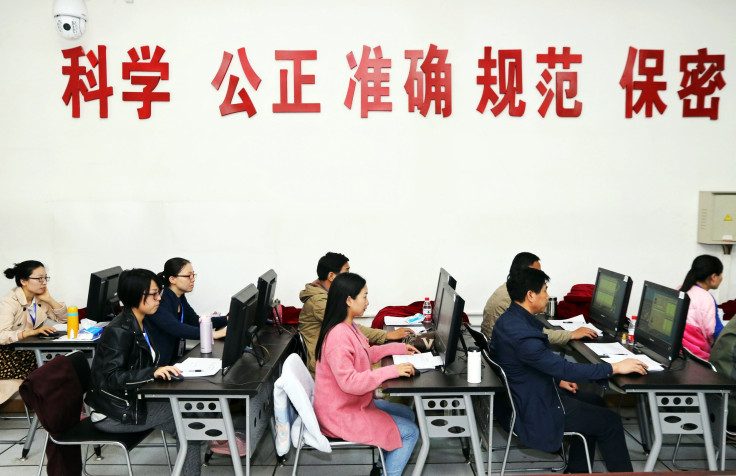What Is The Gaokao? Chinese College Entrance Exam Tests Students, Promises Jail Time For Cheating

College-bound students in China sat down this week to take the gaokao, a highly important two-day entrance exam given annually. The stakes were high — as they always are — but this testing season administrators and government officials beefed up efforts to prevent the widespread cheating that's occurred in recent years.
State-run news outlet Xinhua published a story Tuesday reminded the country's 9.4 million test takers that, as of last fall, cheating on the gaokao is considered a criminal offense. Offenders may spend up to seven years in prison.
"So far, no clues of organized cheating have been detected," Du Chuanjia, education bureau director in Zhongxiang City, told Xinhua.
Right here waiting! Parents wait for students attending fate-changing #gaokao, China's college entrance exam pic.twitter.com/LjkVOiXxfq
— China Xinhua News (@XHNews) June 8, 2016
The gaokao, officially called the National Higher Education Entrance Examination, more or less decides whether students in China will attend college and, if so, where they'll go. Teenagers typically spend at least a year preparing for the nine-hour exam, which tests students on math, language and the discipline they hope to pursue in college, Bloomberg reported. Options include physics, biology and social studies.
Because exam results are so consequential, students and parents have figured out ways to cheat on them. Some teenagers pay proctors to get copies of the questions ahead of time, while others use wireless earpieces and hidden cameras to receive answers from experts while sitting for the tests.
"There are too many students and a lot of competitors. They are very good at these studies and we hope to get a good score to go to our dream university," student Zhang Pu Zheng told CBS News in 2015.
#China : Students caught cheating in university entrance exams could face 7 years in jail https://t.co/OPB9grY6j0 pic.twitter.com/Quuhf1eJ79
— Asian Correspondent (@AsCorrespondent) June 8, 2016
Tuesday's and Wednesday's exams were the latest opportunity for China to crack down on cheaters. Last year authorities in Luoyang used drones to scan for and later investigate electronic signals coming from wireless devices. This year in Beijing eight police officers went to each of the nearly 100 testing locations to check for cheating, according to the New York Times, and in Rujin administrators checked students' shoes before letting them in the classroom.
"Safeguarding fairness in the gaokao and education in general is the baseline for China to maintain social justice," Xiong Bingqi, vice president of an education think tank in Beijing, told the Global Times.
© Copyright IBTimes 2024. All rights reserved.





















